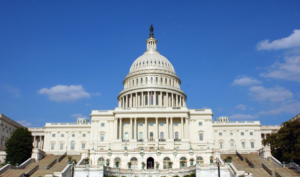Writing about Newark is a ‘privilege and responsibility’ for me. Here’s why.

In my first job as a professional journalist nearly a decade ago, I was assigned to cover schools in wealthy North Jersey towns that looked little like the diverse, working-class cities I grew up in just 20 miles down the road.
I was born and raised in Passaic and Clifton, smaller, somewhat overcrowded cities brimming with vibrant culture, lively and loud. For a few years, I attended parochial and charter schools. But most of my education came from public schools.
In those schools, being Mexican American was nothing out of the ordinary. Both Passaic and Clifton boasted — and still do — rich cultural diversity, with many of the cities’ residents identifying as Hispanic or Latino. There were occasional blips of racism and prejudice, but a multicultural tapestry was part of my upbringing.
So, when I began covering the affluent, predominantly white suburban towns of northern Bergen County, I felt somewhat out of place. I had just graduated with my bachelor’s degree from Rutgers University in New Brunswick, another city where I felt at home and the Hispanic and Latino population make up nearly half of all residents. That was where I first dipped my toe in the education world, mentoring and tutoring young English Language Learners weekly through the “RU Pilot Me” program.
But soon, I found myself in school board meetings where I was the lone person of color, the only Latina in the room. Despite that discomfort, one that would ebb and flow, my mom — who had plenty of experience being the only Latina in her workplace — reminded me that I was there to do a job.
And it was one I was passionate about. I wrote about new curriculum and classes, school enrollment and pricey campus expansions, and more. I’d hear my coverage cited by parents, students, teachers, and board trustees during public meetings, reassuring me that the coverage was helping inform their decisions.
As a rookie reporter, it was a valuable learning experience that taught me the basics of how school districts operate, the crucial role of school board trustees, and the importance of public participation at meetings.
Yet, what I saw and understood more clearly than ever before, was that some of our children’s futures seem to be determined by ZIP code and that deeply rooted systemic educational inequities exist across the cities and small towns of New Jersey and beyond. I’ve repeatedly learned this in various roles since that first job, as a Trenton statehouse reporter, a higher education reporter, and a K-12 journalist in New York during the first year of the pandemic.
Back when Chalkbeat opened a Newark bureau in the spring of 2018, I remember feeling hopeful for the city where my friends are raising their kids and my family members have worked in the schools. A city where there were so few dedicated reporters to cover the happenings of the state’s largest public school system. Chalkbeat began planting roots just as residents were learning how dangerous the drinking water was in schools and their homes, and the state had just restored the district school board’s authority.
I remember thinking to myself, I want to be part of that — a team committed to covering this city full of spirit and diversity, where I can personally relate to the stories of its residents. To be part of the team that helps inform caregivers who want to be advocates for their children’s education and future. To help shed light on the stories of English Language Learners and students with disabilities whose voices might get drowned out by other issues. And to be there for families as they celebrate their successes, in the many ways those manifest.
When I became the Newark bureau’s first bureau chief this spring, it felt like a triumph for my family. I don’t come from a family of professional journalists, though I’d argue that my abuelas and tías are some of the best oral storytellers around. And as a first-generation college graduate, I don’t come from a family of academic degrees, though my relatives work harder and more diligently than anyone I know.
It was through my family’s support, encouragement, and constant nudging from my mom — “ponte las pilas, mija” she still tells me almost daily — that I was able to get to where I am now. So, a decade into my career as a journalist, this job and what it entails has brought with it a sense of duty. In my eyes, writing, reporting, interviewing, and connecting with the community of Newark is not just my job — it’s a personal privilege and responsibility.
I hope our readers see this column as an invitation to reach out and connect. As I settle more into this role, I would love to hear from you. Email me with your tips, community event announcements, story ideas, suggestions for our newsletter or for more Chalkbeat Newark events, or just to say hi. We’re always eager to hear you in your own voice in our First Person and How I Teach series. This year we’re piloting our first ever Student Voices fellowship, where we’ll feature personal essays from two Newark high school students who applied for the semester-long program.
As we look ahead, our mission is to tell the story of Newark’s comeback and show how the school community is fighting to rebuild after losing so much during the pandemic, from loved ones to time in the classroom. We hope you help us tell that story, because without you, there is no story to tell.
This article was originally posted on Writing about Newark is a ‘privilege and responsibility’ for me. Here’s why.





